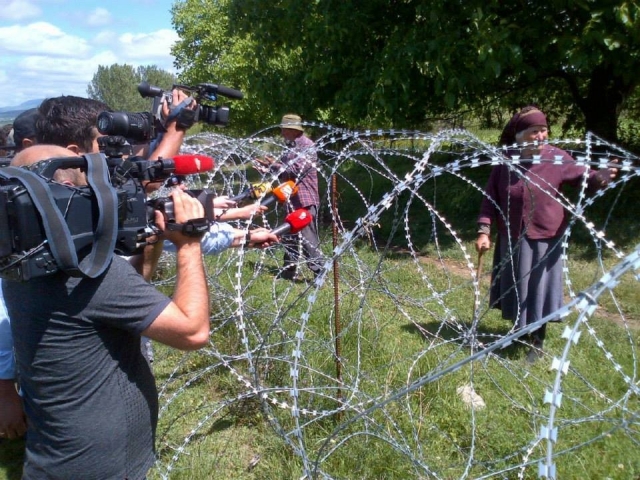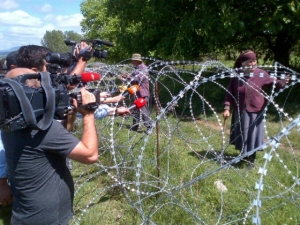MFA Report Reveals Human Rights Violations in Abkhazia, S. Ossetia
TBILISI - Georgia’s Foreign Ministry has published a recently compiled report detailing gross human rights violations in the country’s breakaway Abkhazia and South Ossetia regions.
According to the report, numerous cases of arbitrary detentions, restrictions of movement, infringements on property rights and denying the right to receive education in a language other than Russian or Abkhaz were recorded from October-December 2015.
The report pays particular attention to the installation of barbed-wire fences across the contact line, claiming that it further aggravates the already tense situation.
It also points to new regulations on the legal status of residents classified as foreigners by the de-facto Abkhaz government.
“During the reporting period a new passport regime commenced in Abkhazia. 300,000 new documents, including 250,000 internal passports and 50,000 residence permits, are to be distributed by 1 March,” the document says.
Abkhazia’s new set of passport laws deliberately targets the region’s ethnic Georgian population by forcing them to register as foreigners and carry alien residence permits, according to Georgia’s foreign ministry.
The rebel government in South Ossetia is implementing a similar passport regime, according to the report.
The Georgian government said it would appeal to the international community to take immediate action aimed at stopping the authorities in Sukhumi and Tskhinvali from implementing the new laws.
Georgian government forces have fought three wars against Russian-backed separatist forces in Abkhazia and South Ossetia between 1991-2008. The wars left thousands dead and led to the ethnic cleansing of a quarter of a million ethnic Georgians.
Abkhazia and South Ossetia were recognized as independent states by Moscow following the 2008 war.
International law and the United Nations continue to state that the regions remain parts of Georgia.
Zviad Adzinbaia
Edited by Nicholas Waller












